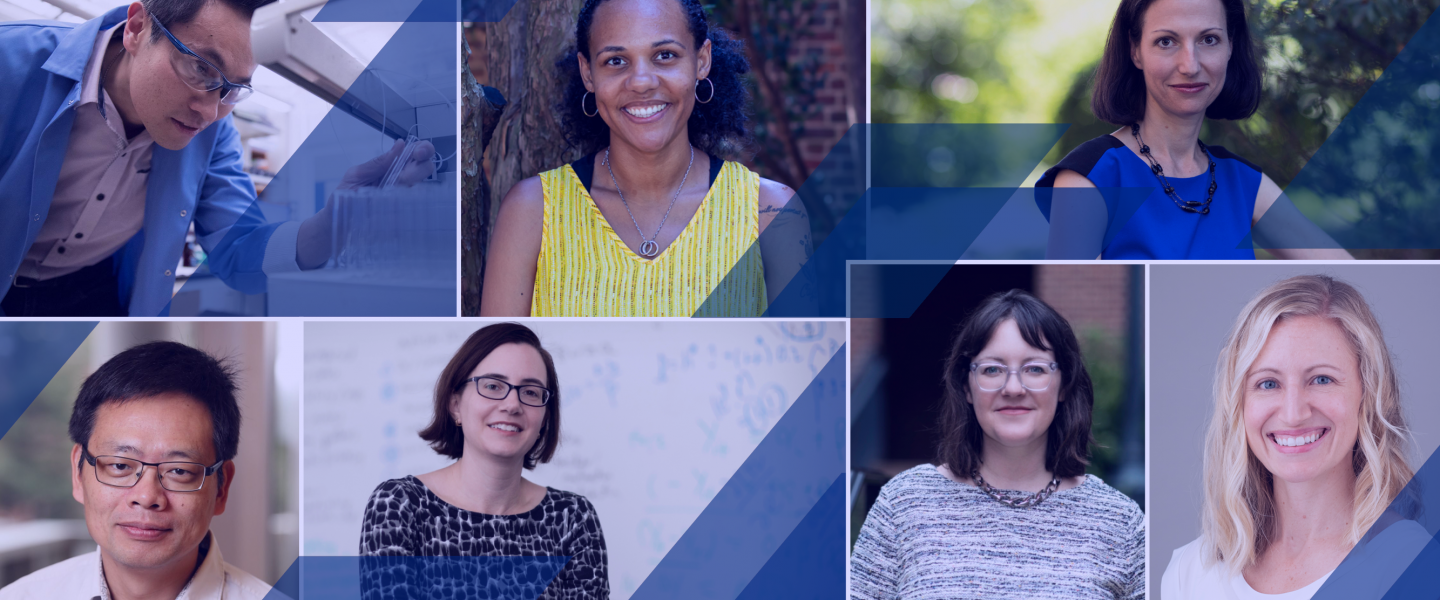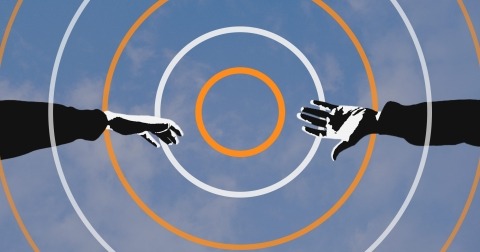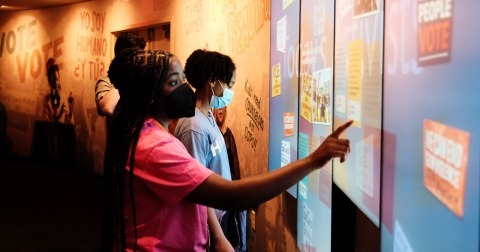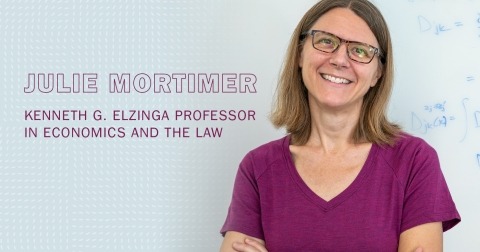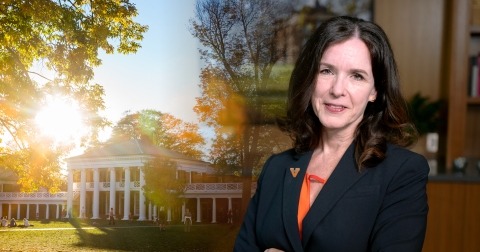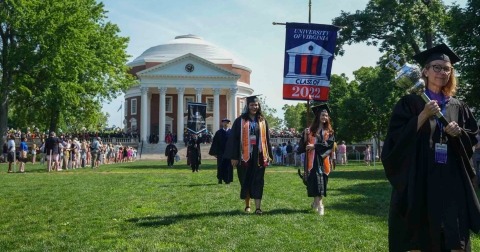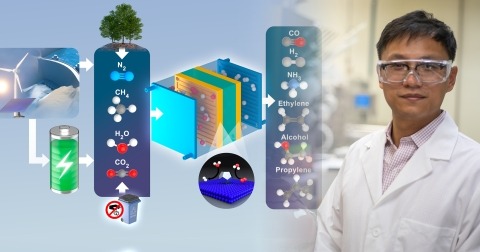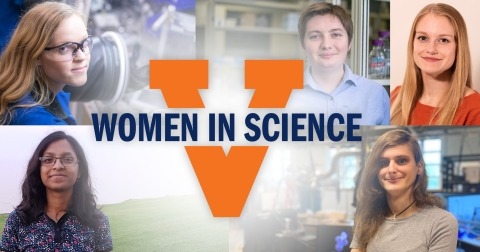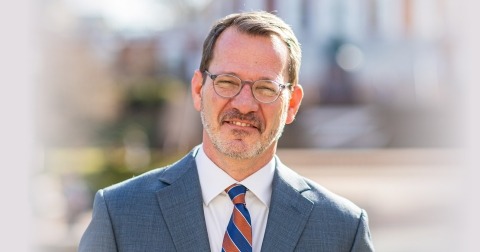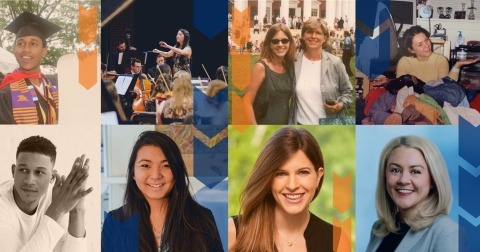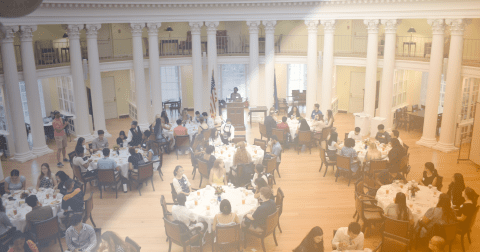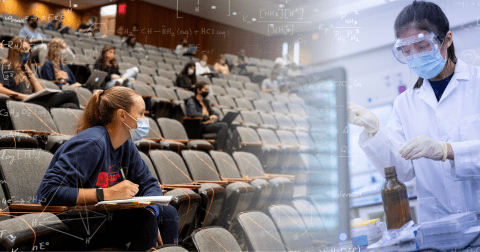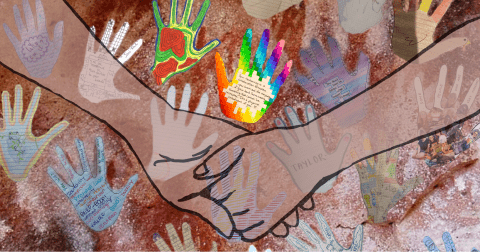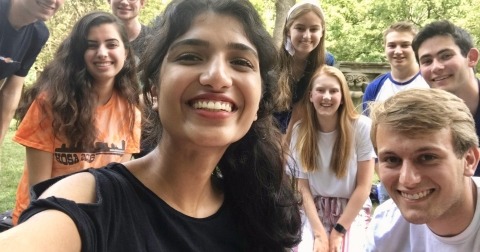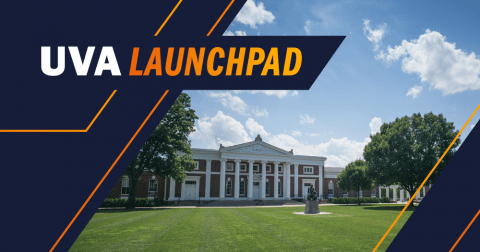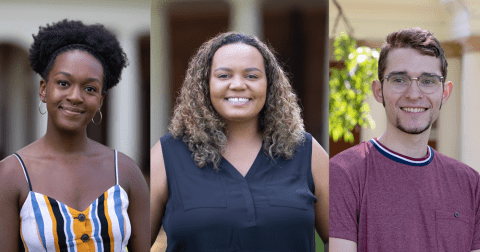Finding a cure for COVID-19 is sure to be only a small part of the solution to the challenges a global pandemic presents. While healthcare workers are at the forefront of the fight against the disease, the virus is affecting nearly every aspect of our lives as we struggle to keep ourselves safe and healthy. From the race for a cure to the search for answers about how the virus is affecting everything from mental health to the media, faculty and students at UVA’s College and Graduate School of Arts & Sciences are bringing a vast range of knowledge, research and expertise to bear on complex problems that are reshaping our world — many with the help of UVA’s Global Infectious Diseases Institute (GIDI), a program launched in 2017 and funded by both the University and donor support to connect researchers across disciplinary lines to address some of the world’s most urgent healthcare and public-safety challenges.
As the world struggles with the COVID-19 pandemic, faculty and graduate students at UVA's College and Graduate School of Arts & Sciences are conducting research that could have immediate impact.
Advancing Healthcare Science
At the beginning of the year, Ku-Lung “Ken” Hsu, an associate professor in the Department of Chemistry, had been working to discover chemical pathways for controlling the human immune system. As the first cases of COVID-19 were reported, he felt certain his experience could make a difference in the fight against the virus. Hsu formed a partnership with virologists Marie-Louise Hammarskjöld and David Rekosh of the School of Medicine to develop chemical probes (molecules that can be thought of as drug prototypes) that help scientists understand what is happening inside the host during an infection and as the virus replicates, important factors in the search for new antiviral drugs.
“I was very fortunate that GIDI was available to help align our interests and expertise...I’m really grateful that we’re able to work on research that might make an impact and maybe rather quickly.”
Ku-Lung "Ken" Hsu, associate professor of chemistry, pharmacology, and molecular physiology and biological physics
Martin Wu, an associate professor in the Department of Biology, and Rathina Kumar Shanmuga Kani, a research associate and post-doctoral fellow in biology, also credit GIDI with helping them secure the resources they needed to develop a new COVID-19 test.
“The availability of clinical samples is really important to us. If we want to validate our tests, we need that...and to get FDA approval.”
Martin Wu, associate professor of biology
Shanmuga Kani had experience working with a commercial test kit for bacterial pathogens, and he and Wu felt they could adapt the concept to test for COVID-19. As their research nears its completion, they’re confident that they can develop a point-of-care kit much like a home-pregnancy test kit that will make testing for COVID-19 faster, easier, and less expensive.
GIDI’s help in developing a partnership with the UVA Hospital System will be crucial in making the kit ready for commercial use.
Addressing COVID-19’s Mental Health Impacts
While the virus has taken a physical toll on millions of people around the world, many are dealing with its impact on their minds and their behavior, so faculty and researchers in the College of Arts & Sciences are also looking at how the pandemic is affecting mental health.
According to Bethany Teachman, a professor in the Department of Psychology, “Close to a third of the population will struggle with anxiety at some point in their lifetime, but right now with the extra stresses that are added because of the coronavirus, rates are really going through the roof.”
Teachman took advantage of GIDI’s help in securing a grant quickly to develop a means to deliver care to people using technology. The grant allowed Teachman to offer an anxiety-reduction program called MindTrails (mindtrails.virginia.edu) to participants whose progress will be tracked over time.
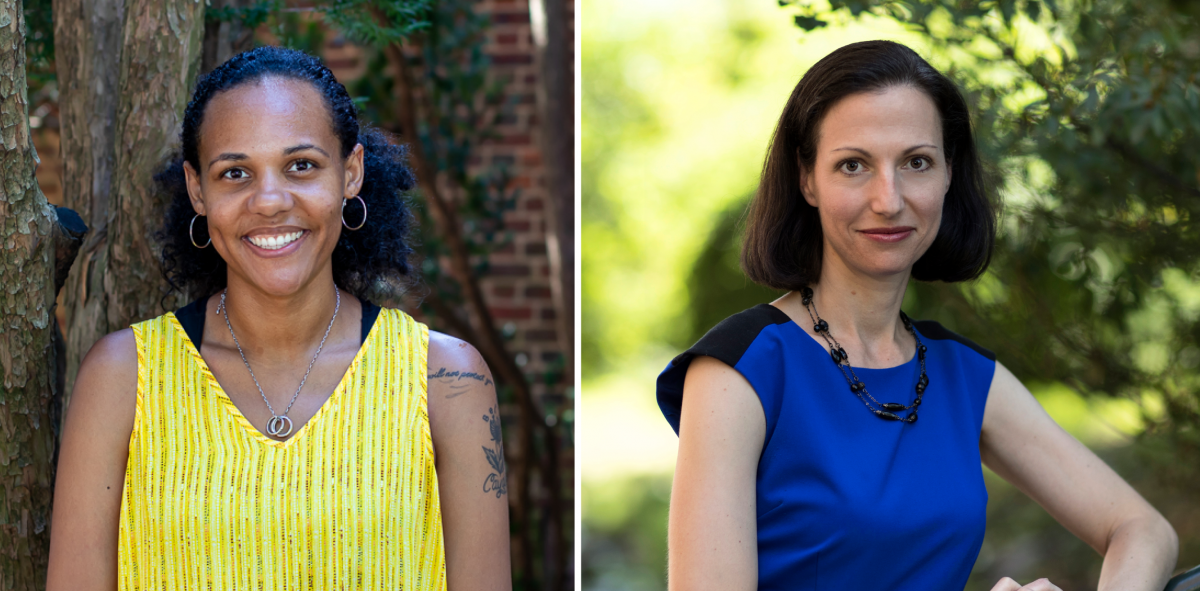
As the global pandemic brings with it a host of mental-health challenges, psychology professors Seanna Leath (left) and Bethany Teachman (right) are working to address its impact on vulnerable populations and those struggling with anxiety.
“We think it’s going to be really important to understand how people can use good coping strategies now to make it more likely that they won’t have enduring anxiety going forward,” Teachman said.
Seanna Leath, an assistant professor of psychology, is looking, specifically, at the impact of the responses of institutions of higher education on the mental health and resilience of Black students. She’s also collecting data on the impact of the pandemic and the Black Lives Matter protests on Black mothers and on the social and emotional development of their children. The data she collects will help inform better policies for healthcare and education.
The Pandemic’s Impact on Policy
In addition to solving some of COVID-19’s most pressing healthcare problems, faculty and researchers in the College of Arts & Sciences are exploring a wide range of social challenges created by the virus and the measures employed to contain it.
Caroline Amoroso, a post-doctoral research associate in biology, and Janis Antonovics, a research professor of biology, are interested in the evolution of behaviors that protect us from disease. They are about to publish their theoretical research offering solid evidence that social distancing is an important component in the fight against the disease.
The economic stress caused by the pandemic also appears to be causing an increase in domestic violence around the world. Amalia R. Miller, a professor in the Department of Economics, and doctoral candidate Melissa Spencer are looking at police data on crime and calls for service to better inform more effective policy development.
In the College’s Global Studies Program, assistant professor Kathryn Quissell, an expert in public administration and policy, is researching the political factors influencing how and why certain countries respond more quickly and more aggressively than others and how those factors could pave the way to better healthcare policy.
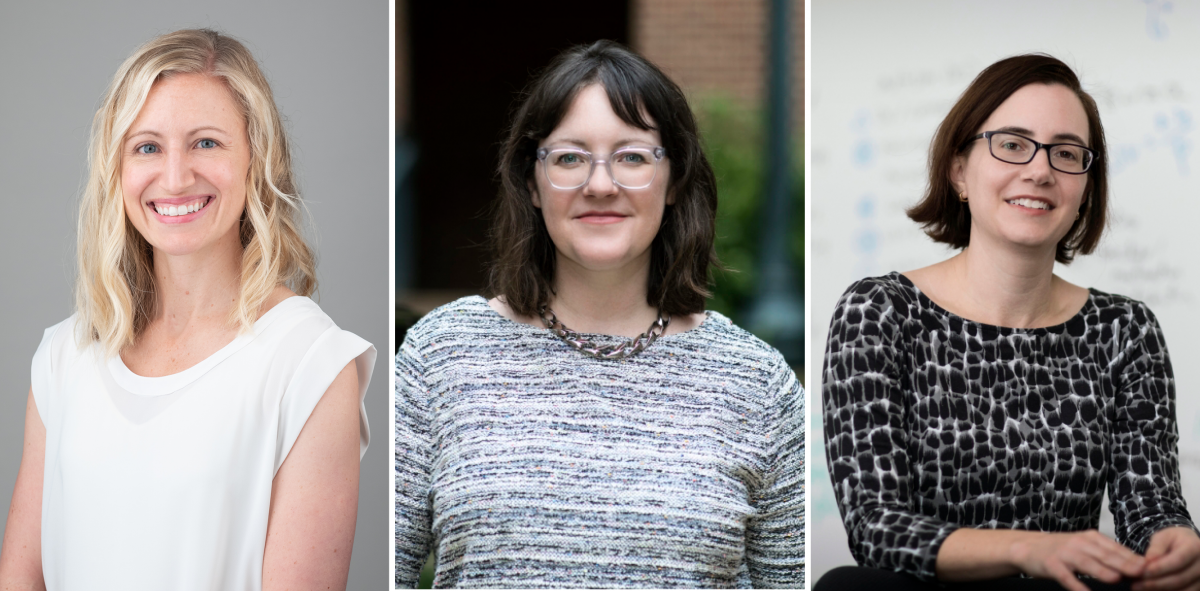
Global studies professor Kathryn Quissell (left), media studies professor Elizabeth Ellcessor (center), economics professor Amalia Miller (right) are exploring the role that policy plays in mitigating the impact of global health crises like COVID-19.
Elizabeth Ellcessor, an associate professor and director of graduate studies for the Media Studies Department, is looking at the role the media plays in connecting people with the resources they need to stay safe and how institutions like universities are adapting existing emergency-response resources to meet needs created by the pandemic.
“I think there is a role for everybody in the College to play,” said Alison Criss, an associate professor of microbiology, immunology and cancer biology with UVA’s School of Medicine, who worked with Linda Columbus, a professor in the College’s Department of Chemistry and Lukas Tamm, professor of molecular physiology and biological physics, to establish GIDI as a means to promote and support innovative, cross-disciplinary research partnerships with the potential to solve problems of urgent and global importance.
The pandemic, she says, “is not simply a medical problem. It touches all facets of our lives, and we all have experience and expertise that we bring to the table. I can’t think of a better way to pursue the University’s mission to be great and good than by bringing people together to make significant improvements in our community, especially when we’re faced with something of this magnitude.”

